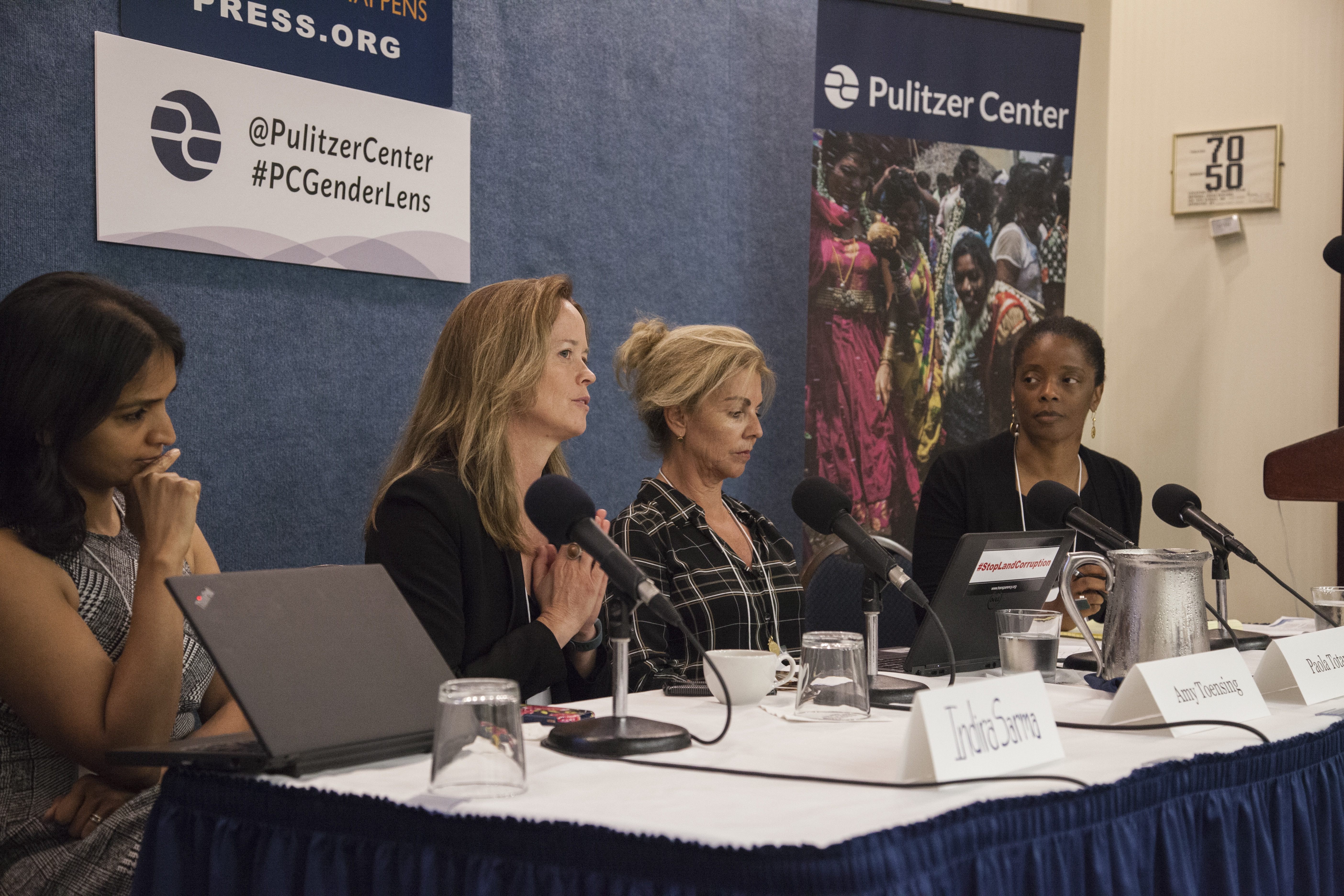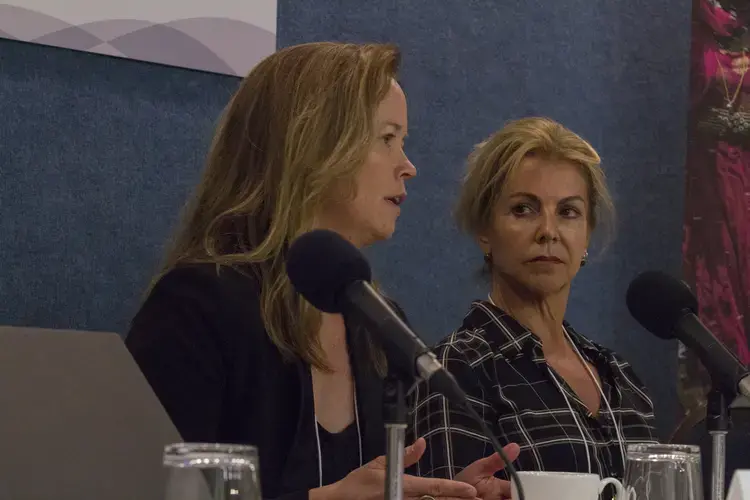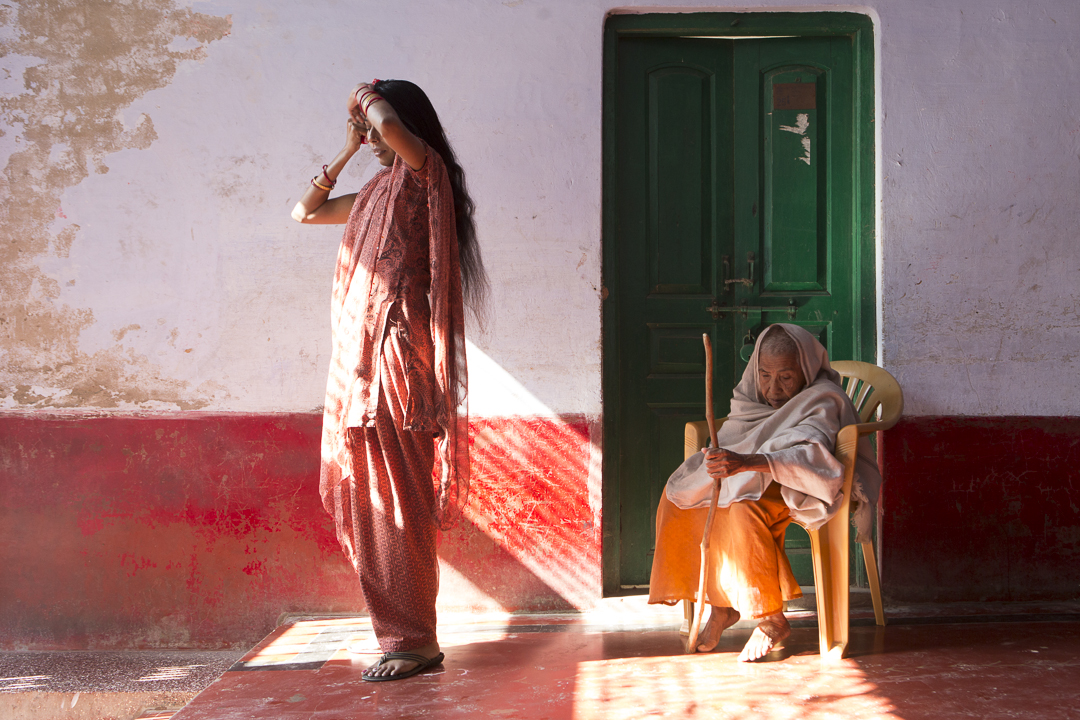
During the Property Rights panel at the Pulitzer Center Gender Lens Conference on June 3, 2017, the importance and consequences of property rights for women around the world were shared through the discussions of LaShawn Jefferson, deputy director of the Perry World House, University of Pennsylvania (moderator); Indira Sarma, chief operating officer, Namati; Amy Toensing, freelance photojournalist, Pulitzer Center-supported "A World of Widows" reporting project; and Paola Totaro, editor, Thomson Reuters Foundation's place. In fact, the panelists called these property rights violations “property robbery” and directly connected customs and laws that separate women from their property with the spread of HIV/AIDS and creating conditions for further human rights violations.
The panel showed a three-minute video associated with the National Geographic Magazine feature story: "For Widows, Life After Loss" reported and photographed by Toensing, Cynthia Gorney and Kathryn Carlson, chronicling what can happen to women in many parts of the world after loosing a husband. As these widows said: “If you have land, then you have a voice.” “Land is everything.” “Land is life.”
Jefferson set the scene for the conversation by describing the “profound consequences” of property robbery on the health, livelihood and security of women in many countries around the world. “Property rights violations puts women at risk of other human rights violations and impoverishes women for generations.”

Totaro stressed the importance of raising awareness and increasing understanding of property rights and the impact on women. Thomson Reuters’ place initiative, a joint venture with the Omidyar Network, is specifically geared toward amplifying property rights stories and the real world impacts of the customs and laws that allow the taking of property from women at moments of great vulnerability.
Sarma detailed the cycle of HIV transmission tied to issues of property and widowhood when these women are impoverished and have no options for taking care of their families. She said Namati, which focuses on innovations in legal empowerment, helps these communities “know, use and shape the law.” In some cases, she said, national laws provide legal protections but local customs on property rights and inheritance remain challenging. “We lose as much as we win. These are really challenging issues.” Namati works to create local advocates within these communities to expand protections for women.
Toensing said the "Widowhood" project is one she has been working on since 2013. “I couldn’t do a [widowhood] story without looking at property and inheritance,” she said. For women in countries like Uganda and India, these are the “biggest economic issues for women,” according to Toensing.
As detailed in the National Geographic story property is a powerful symbol of economic security with tremendous impact on a woman’s ability to grow and prepare food, shelter the family and produce income for the family’s survival (i.e., selling firewood for cooking or growing crops to sell). Losing a husband can often start a devastating spiral into poverty. The loss of property and rights can range from taking something small like kitchen utensils to taking her property and the woman herself to give to a male relative.

According to these panelists, nonprofits and other advocates are using community education and the legal system to address property grabs in countries like Uganda that have more progressive land rights and inheritance policies. Strategies including training police and court system employees on the laws that confirm women’s rights to own property and training advocates within the community on ways to address property grabs n real time.
These individual stories of widowhood are “tied to big global issues,” said Sarma.
As they remarked that women’s rights (including property and economic empowerment) can sometimes move slowly, the panelists reminded attendees that these policies also changed slowly in the United States. American women could not obtain credit without their husbands until the 1970s.















